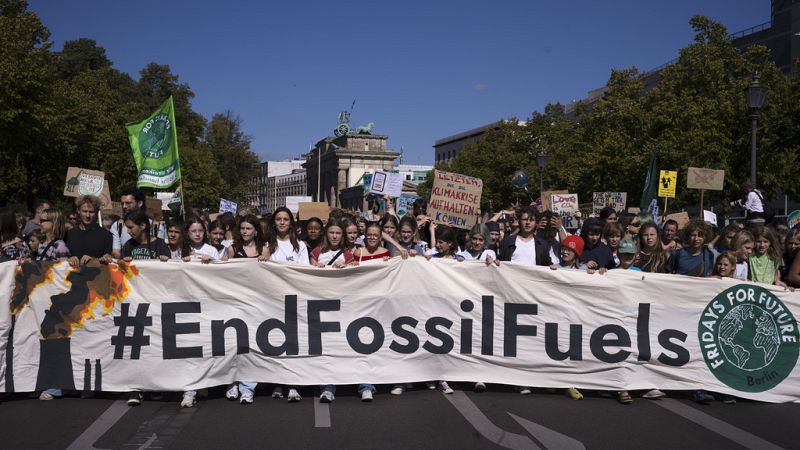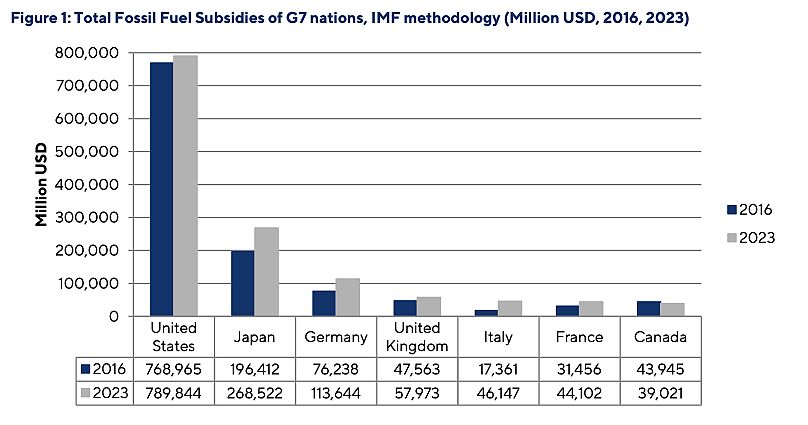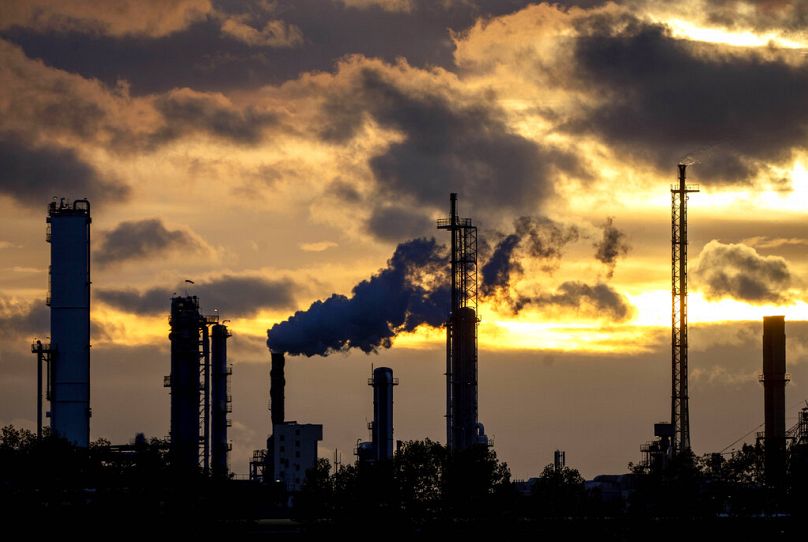Fossil fuel subsidies: G7 nations ignore targets and increase taxpayer funding to record levels

Little progress has been made towards stopping subsidies for oil, gas and coal among the G7 group of countries, a new report by Greenpeace has highlighted.
The G7 group, which includes Canada, France, Germany, Italy, Japan, the UK and the US, pledged in 2016 to remove all subsidies for fossil fuels by 2025. But the report shows that, rather than reducing subsidies, all but one of the G7 countries has actually paid more to fossil fuel producers in 2023 than they did when the commitment was made.
In total, subsidies have increased by 15 per cent since 2016 to a total of $1.36 trillion (€1.32 trillion) in 2023.
“The G7 countries, some of the richest and most powerful nations on Earth, gave themselves almost a decade to take steps towards the ‘elimination’ of fossil fuel subsidies by 2025,” explains Virag Kaufer, Greenpeace climate and energy lead.
“It’s now 2025 – the year has started with devastating climate calamities – and they aren’t just missing that target; they’ve increased the public spending on climate-wrecking fuels.”
Which countries are subsidising oil and gas the most?
To evaluate the subsidies paid, Greenpeace commissioned the Forum for an Ecological and Social Market Economy (FöS) to formulate the report. Using data from the International Monetary Fund (IMF), the research highlighted the worst offenders in terms of climate-damaging subsidies.
Italy increased its subsidies more than any other nation, going from around $17 billion (€16.4 bn) in 2016 to $46 billion (€44.5 bn) in 2023. That’s an increase of 166 per cent.
Germany gave the most ‘extra’ money, inflating its subsidies by $37.4 billion (€36 bn) in the seven years, a 49 per cent increase.
“With its fossil-based subsidy policy, the German government is creating false incentives that are harmful to the climate,” says Sophia van Vügt of Greenpeace Germany. “The world’s third-largest economy would be better off relieving the burden on people with a socially staggered climate tax instead of financing climate-damaging behaviour with further energy subsidies.”
France gave $12.6 billion (€12 bn) more, an increase of 40 per cent, while the UK upped its subsidies by $10.4 billion (€10 bn) or 22 per cent.
According to the report, the highest total amount spent on subsidies was in the US, with $790 billion (€765 bn) poured into fossil fuels in 2023. Japan was second with $269 billion (€260 bn), while Germany was third with $114 billion (€110 bn).
Of the seven nations, only Canada has reduced its fossil fuel subsidies since 2016. It has seen a modest reduction of 11 per cent after cutting its spending from $44 billion (€42.5 bn) to $39 billion (€37.8 bn).
Why should the G7 be reducing fossil fuel subsidies?
Subsidising fossil fuels actively hampers clean energy takeup. Making fossil fuels cheaper means clean energy technologies become less competitive and less attractive for investment. This is one of the reasons that the G7 pledged to phase out fuel subsidies.
Following the Ise-Shima Summit in 2016, the Leaders’ Declaration stated, “We remain committed to the elimination of inefficient fossil fuel subsidies and encourage all countries to do so by 2025.”
Eliminating subsidies to fossil fuel suppliers is considered by energy experts to be one of the most cost-effective measures governments can take towards their Paris Agreement commitments. Subsidising oil and gas is essentially incentivising their use, bolstering dependence on these energy sources.
Greenpeace flags that these subsidies are also disproportionately beneficial to the wealthy, who tend to have larger carbon footprints and higher fossil fuel use. It also keeps those on lower incomes sheltered from the real cost of energy, making it unaffordable if the subsidies are removed.
“With this year already bringing record fire damage in the USA, other climate-driven disasters, and the latest slew of multi-billion profits for fossil fuel corporations, governments need to get a grip on public spending,” added Kaufer. “They need to urgently divert it from fossil fuel incentives towards a just and sustainable transition.”
In response to Euronews Green enquiries, a German government spokesperson confirmed that the Federal Government is committed to reducing climate-damaging subsidies to achieve climate targets and release financial resources for sustainable investments. Mechanisms have been identified for this, but it will be up to the winner of the forthcoming election to decide how to take things forward.
The governments of France, Italy, and the UK had not responded to a request for comment at the time of publication.



